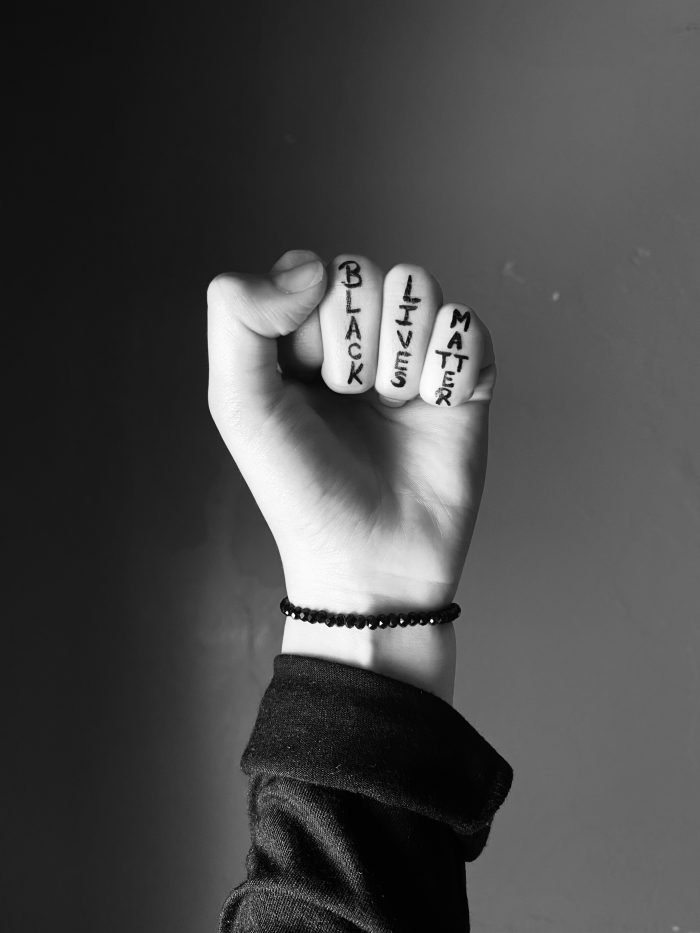
Watch an anti-racism hour with Jane Elliott talking with Waylon Lewis of Elephant, here.
~
One of the most common ways that we perpetuate systems of oppression is by pretending that we don’t participate in them.
One of the most insidious ways that systems of oppression remain unchecked is by advancing the myth that someone either doesn’t discriminate (isn’t racist) and is therefore a good person, or someone does discriminate (is racist) and is therefore a bad person.
This kind of black and white thinking leaves no space for the nuance and complexity in which systems of oppression live.
It results in everyone who self-identifies as a “good person” (I’d say 98 percent of people) refusing to own up to where they have internalized the dominant narratives of these systems of oppression.
It allows racism to hide more easily and makes it harder to point out and deal with. Plus, it makes POC feel frustrated and alone because they know they encounter discrimination everywhere they go, but no one is willing to own up to doing the discriminating.
The hard fact is, I am (we are) inextricably a part of a country that has been deeply and grotesquely seeped in racism for more than 400 years. Our thought processes, beliefs, emotions, and understanding of the world around us have been shaped by this system of oppression. So it unavoidably echos in each of our minds.
We have been programmed to make assumptions based on race. To deny this is to avoid owning up to our own internalization of systems of oppression.
Until we no longer live in an oppressive society, we all have some form of internalized oppression and internalized privilege, and none of us gets to say that we don’t discriminate.
This doesn’t mean that we act on these discriminations, nor does it mean that we have chosen them. It just means that it is the default worldview of a discriminatory society and we have to work every day to fight against the assumptions our mind naturally makes about the world around us.
I am part of a generation that self-identifies as open-minded and progressive, but this self-identification is more harmful than it is helpful. When we pretend that we are color-blind or gender-blind or anything else, we absolve ourselves from participating in meaningful conversations about the nuance and complexity of these issues and from taking responsibility for our participation in systems of oppression.
As Dr. Robin DiAngelo, author of White Fragility, says, “What I see is the result of a generation that went with colorblindness. Young people who think they are not racist, but cannot engage critically on questions of race. […] Our narratives of racial progressiveness—our self-image as open-minded, our intentions—have not changed our racially disparate outcomes.”
The phrase “I’m not racist” acts as a deflection to critical inquiry; it turns the conversation away from the insidious nature of systemic racism and onto the white person’s testimonial for why they are not a racist person. Which is irrelevant.
It’s not enough to be not-racist. As white people, we have an obligation to be actively anti-racist.
So rather than “I’m not racist,” let’s use the opportunity to discover how we can be better anti-racists. To call ourselves out for what we haven’t been doing to help end systemic racism, not boast about what we have been doing.
Because clearly, whatever we have been doing is not enough. Not even close.
Let’s not allow our egoic need to establish our anti-racist credentials cause us to miss out on an opportunity to brainstorm, think critically, and show others what it looks like to take responsibility for our white privilege.
Please, let’s all own up to the ways we have internalized the oppressive culture we were born into. Let’s talk about it. That which is out in the open can be worked on; that which is in the shadows can hide forever.








Read 3 comments and reply